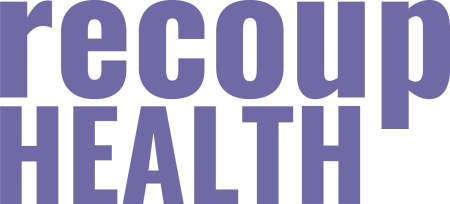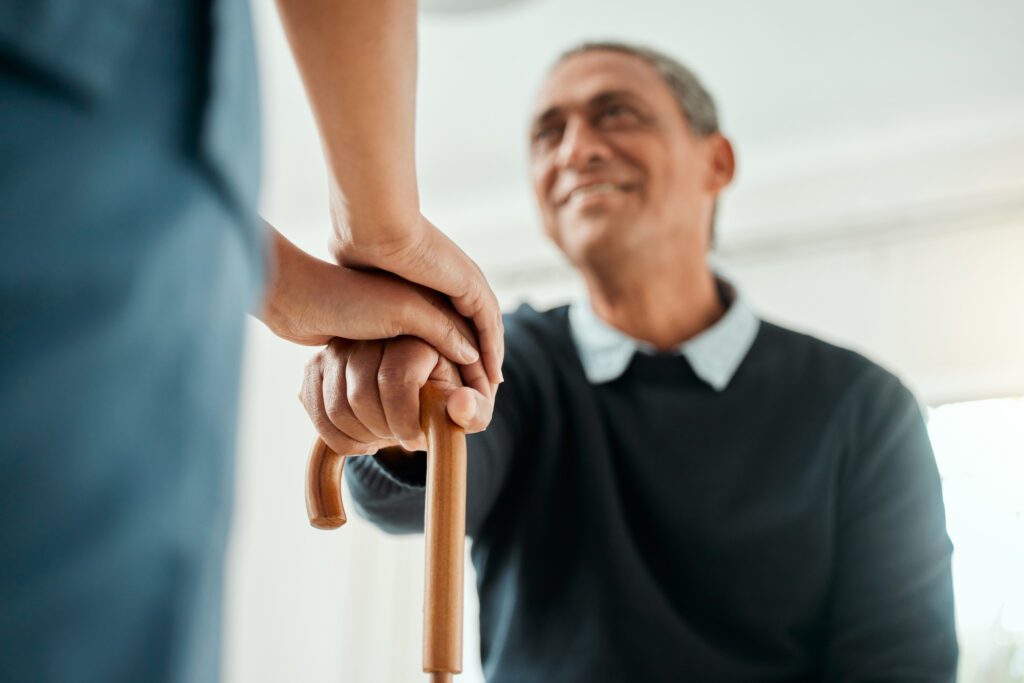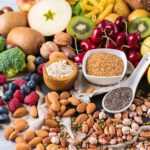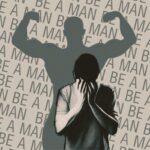Why Root-Cause Rehabilitation Matters in Stroke Recovery
For many stroke survivors, the path to self-reliance begins after the hospital discharge papers are signed. True recovery is not just about moving a limb or speaking a word again; it’s about reclaiming one’s sense of self, dignity, and joy. Healing goes far beyond just physical therapy—it’s about nurturing the body, mind, and soul through a holistic and integrative approach.
At Recoup Health, we believe in treating not just the symptoms of stroke and its associated complications but also the underlying root causes like diabetes, hypertension, and obesity. We blend the power of neuroplasticity, functional and root-cause medicine, lifestyle medicine, rehabilitation, and advanced therapies to create a recovery plan that not only heals the body but reawakens the spirit.
This is the heartwarming story of a 65-year-old former corporate executive who, through a compassionate, tailor-made rehabilitation journey, not only regained his independence but rediscovered a renewed joy for life. For years, our patient had lived a fast-paced corporate life, dealing with stress, poor eating habits, and minimal exercise. Unfortunately, these factors, along with diabetes, hypertension, high cholesterol, and obesity, eventually caught up with him. It was supposed to be a relaxed retirement morning. But it quickly spiralled into crisis when he was found slumped beside the bed, unable to move the right side of his body or speak coherently. A massive ischemic stroke had struck, upending life in seconds.
Initially, he received emergency care and basic physiotherapy. But his family soon realized that fragmented, symptomatic treatment wasn’t enough. His blood sugar was erratic, he struggled with depression, and simple tasks like holding a spoon or standing unaided remained impossible even after a month. That’s when his family discovered Recoup’s Integrative Root Cause Stroke Rehabilitation program. This one-stop, physician-supervised, interdisciplinary approach didn’t just treat the stroke but tackled the why, how, and what’s next.
His journey at Recoup Health began with a comprehensive evaluation by a PM&R (Physical Medicine & Rehabilitation) Physician. Every aspect of his health was assessed—neurological deficits, muscle tone, balance, speech, cognition, sleep quality, and metabolic control. He was even asked to undergo an investigative consultation with a nutritionist and clinical psychologist for nutritional status and emotional well-being. The goal? Not just to walk again but to rebuild his life, prevent future strokes, and enhance his quality of life.
The Initial 1-2 weeks: One Muscle, One Nerve at a time
Supervised Physical Therapy – Led by a PM&R Physician, physiotherapists targeted muscle re-education, spasticity, weakness, gait training, and postural alignment—key to preventing contractures and improving mobility. Using advanced tools like instrumented posture and gait analysis, the team created customized stretching, strengthening, balance and gait training exercises to retrain his movement patterns.
Virtual and Augmented Reality-Based Therapy—At the core of his recovery was neuroplasticity, the brain’s remarkable ability to reorganize itself by forming new neural connections. Techniques like Rehametrics therapy were incorporated to create an immersive environment that engaged cognitive and motor skills, stimulating brain pathways to restore functional movement.
Coordination Dynamics Therapy (CDT)—A breakthrough moment came with Giger MD, a neuroplasticity-boosting coordination dynamics machine that retrains the nervous system by synchronizing arm and leg movements in a rhythmic, motor-cognitive loop. This advanced therapy helped improve balance, posture, and limb coordination by simultaneously engaging both motor and cognitive functions.
Aquatic Therapy in a temperature-controlled swimming pool offered a low-impact, supportive environment that allowed him to practice movements he couldn’t do on land, building confidence and restoring strength. It reduced his fear of falling, improved joint mobility, and offered a powerful psychological boost as he was moving again.
Week 3-4: Word by Word, Step by Step
Occupational Therapy: Fine motor skills and daily living tasks like brushing teeth, pouring water, and buttoning a shirt were systematically reintroduced. Small tasks became milestones, symbols of renewed independence.
Speech and Language Therapy – Speech therapy sessions addressed dysarthria and aphasia, helping him progress from unclear speech to complete sentences, restoring his ability to connect and communicate.
Clinical Nutritionist and Functional Medicine Input – A Lifestyle and Functional Medicine Physician and Clinical Nutritionist created a plan to tackle his metabolic syndrome. Personalized, anti-inflammatory meals were paired with blood sugar monitoring using CGM Patch, micronutrient optimization, and gut health strategies. Supplements like Omega-3 fatty acids, vitamin D, and B-complex vitamins were introduced to support brain health and nerve repair.
Week 5-6: Rebuilding Mind, Mood & Movement
Therapeutic Yoga – Gentle yoga improved flexibility, breath control, and emotional balance. Movements were tailored for stroke recovery and chronic conditions like diabetes and hypertension.
FIR Sauna – Far Infrared (FIR) Sauna sessions became a key part of his care plan. These deep-heat therapies helped reduce inflammation, improve circulation, and ease the chronic pain associated with metabolic syndrome and inactivity.
Psychological Sessions – Recovering from stroke isn’t just a physical journey—it’s deeply emotional. The patient underwent a structured program that included Cognitive Behavioral Therapy (CBT) to address post-stroke depression and anxiety, Mindfulness-Based Therapy (MBT) to enhance emotional regulation and reduce stress, and Eye Movement Desensitization and Reprocessing (EMDR) to process trauma related to the stroke event. Additionally, Pain Reprocessing Therapy (PRT) was used to reframe chronic pain perception by targeting neural pathways involved in fear and pain memory. This multifaceted approach improved his mental well-being and enhanced motivation, participation in physical rehabilitation, and long-term neurological recovery.
Health Coaches – The Bridge to Sustainable Recovery
One of the most powerful supports in his recovery journey was a dedicated Health Coach, who became the bridge between medical advice and real-life execution. The Health Coach set weekly lifestyle goals, helped build consistent routines, and ensured meal planning, movement, and mindset accountability. They translated complex clinical strategies into simple, actionable habits and offered motivation on challenging days. This ongoing guidance made behaviour change sustainable, and true transformation took root.
Week 7–8: Returning to Life, Renewed and Rebalanced
He no longer needed help walking. He became independent in ADLs, joined a social group, and even gave a short speech at a community gathering—his voice steady, his presence dignified.
Quantitative improvements mirrored the qualitative changes:
- Mobility: Walking independently with a cane
- Speech: Nearly clear, intelligible communication
- Blood sugar: HbA1c improved from 8.4% to 6.9%
- Cholesterol and BP: LDL down by 30%, BP stabilized under Lifestyle Medicine guidance
- Weight: 6 kg lost in 2 months through sustainable nutrition
- Mental health: Significantly reduced Depression Score on DASS-21
Why Recoup Works?
Unlike conventional stroke rehabilitation that isolates symptoms, Recoup’s model is rooted in integration and supervision:
- Supervised care by a dedicated care team ensures that therapies evolve safely and effectively.
- Interdisciplinary interventions—physiotherapy, occupational therapy, speech therapy, psychology, yoga, aquatic therapy, Giger MD, FIR sauna, exergaming, and nutrition—are seamlessly connected.
- The focus is always on the root cause, not just the surface-level symptoms.
This is not about short-term recovery. This is about sustainable transformation.
Every stroke survivor deserves more than just survival. They deserve a second chance at life—a whole, purposeful, and joyful life. This story is not just about rehabilitation. It’s about rediscovering meaning, strength, and possibility in adversity.
At Recoup Health, recovery doesn’t end with walking again. It begins with living again.
Ready to Begin Your Stroke Recovery Journey?
Whether you or a loved one is facing life after a stroke, Recoup Health offers the tools, team, and technology to turn recovery into renewal.
📍 Bangalore | 💻 Online Consultations
🌐 Website: https://www.recoup.health/
📞 Call: 080-69274900
📩 Email: connect@recoup.health




